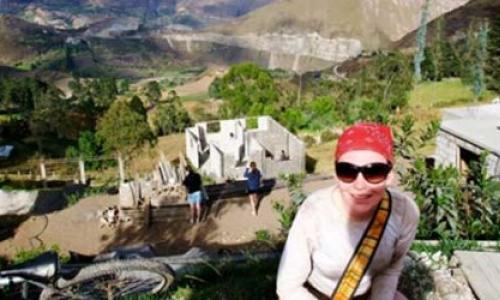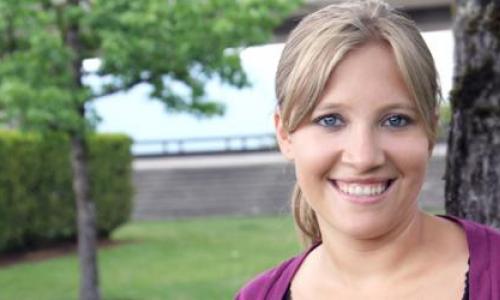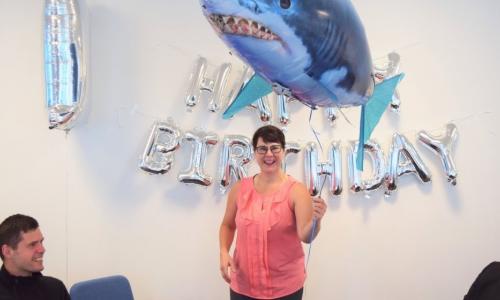
Fraser Health is built upon networks of different teams and personnel that create today's health authority. With this said, it can be quite intimidating when you find out that you will be put on multiple teams for your first Co-op term. This is exactly what happened to me. Here is my unique experience and how I managed to juggle everything and be efficient and effective.
When I applied for this Co-op position, the job posting indicated a sole Audit team position. Later, when I was hired, my manager told me that I would have the opportunity to work for different teams within the portfolio. At first, this was scary, as this was my first Co-op term, so I felt like I was extremely inadequate for the position. Family and friends reminded me that my managers had to have seen something in me to put me in this position, so I embraced the situation.
A few weeks later, I was introduced to other teams that handled different aspects of health care within the spectrum of quality care. These aspects included patient experience and quality improvement interventions, accompanied by project management techniques. I quickly found out that both teams' work was vastly different, but both teams fell under quality improvement. The mission was the same, but the methods were different!
With this said, I had to approach the teams differently, which allowed me to acquire skills that have helped me stay on top of things and put my best foot forward.
1. Learn the Communication Style of Each Team
This took time to understand, especially at the beginning of my Co-op, that not all teams communicate the same way as other teams. The communication style is usually established at the beginning when you first meet your managers and teams. It is better to establish the expectations and frequency of communication from your managers initially, so there is no communication strain. For example: know what software each team uses.
One of my teams mainly uses Microsoft Teams, and the other uses Skype for Business. Both platforms were new to me so getting comfortable with them was necessary from the start. Maneuvering your way around these platforms can allow for ease when using them for meetings and presentations! Another aspect of communication is terminology. I made the assumption that doing a health sciences degree would mean I was already prepared for this job language-wise.
However, that was false, as I quickly realized that both teams used different terminology whether it would be health-related or project management-related terminology. To be more prepared for work, I would keep in mind certain words or topics that I did not understand and either search them up on Google or watch YouTube videos on these topics to better understand. This helped tremendously as it allowed me to participate confidently in specific conversations and understand the reasoning behind certain project pieces and documentations.
2. Ask! Ask! Ask!
When you join the workforce, it can be quite intimidating to let your guard down and admit when you do not know something or are unsure. I faced this in the first two months as I would apologize for asking questions and feel bad for bothering my managers. In turn, this led to miscommunication or assumption. I had to quickly let my guard down and allow myself to simply accept that it is not possible to know everything right away initially, and I needed to get the help of my managers and coworkers sooner rather than later.
All I can say is, just ask. Your managers will appreciate your questions and curiosity and would choose that over silence and not doing work accurately.
3. Prioritize Tasks Accordingly
Over this semester, I found myself overwhelmed with daily tasks. Thankfully, my workweek was split between my two teams, so my work never overlapped. With that said, I had to continually assess my capacity and what I could finish within a day and what needed a couple of extra days to complete.
Ask your managers when they need certain documents or tasks done and prioritize according to that. This applies to any type of work you do, but especially when working on two teams. It is easy to feel overwhelmed! Before it gets to that point, prioritize and be honest with yourself about your capacity to avoid eventual burnout.
4. Be Transparent
Above all, this tip is the most important one; Be transparent! What do I mean by that? Be aware of how you feel, such as feelings of anxiousness or increased stress levels creeping in! Especially with being on two teams, your brain is constantly switching between the two groups and remaining calm and sane is hard sometimes. I say check-in with yourself regularly, talk to your friends and family about it, and most of all, have open communication with your managers.
Obviously, some managers’ styles are different from each other. Still, in my experience, I was lucky enough to come across managers that created an environment where I could tell them what was going on and how I felt about the amount of work. Know your capacity, how much you can take, and do not be afraid of challenges and feedback!
None of these tips came to me right away.
In the beginning, I was not confident in myself when it came to my ability to work. Fraser Health itself and the pressure of being a student within a significant health authority intimidated me. As I made more and more connections along the way with directors, managers, coordinators, and fellow Co-op students that were so naturally knowledgeable in what they were doing, it made me realize that everyone started from somewhere, and it is about continually seizing opportunities.
Above all, I needed to be more confident in my abilities and myself. Once I realized that it was okay to fail and make mistakes, the workflow and ability almost came naturally. This organization would not have hired me if they did not see something in me. Coming into your own and using your experiences as you go as learning tools and drive for your future work will surely set you apart as you go on.
I know that my career journey has just started, and I will definitely make more mistakes in the future. Using the tips that I have learned through this first Co-op semester will put me in an optimal position to succeed and gain even more relevant experience.














